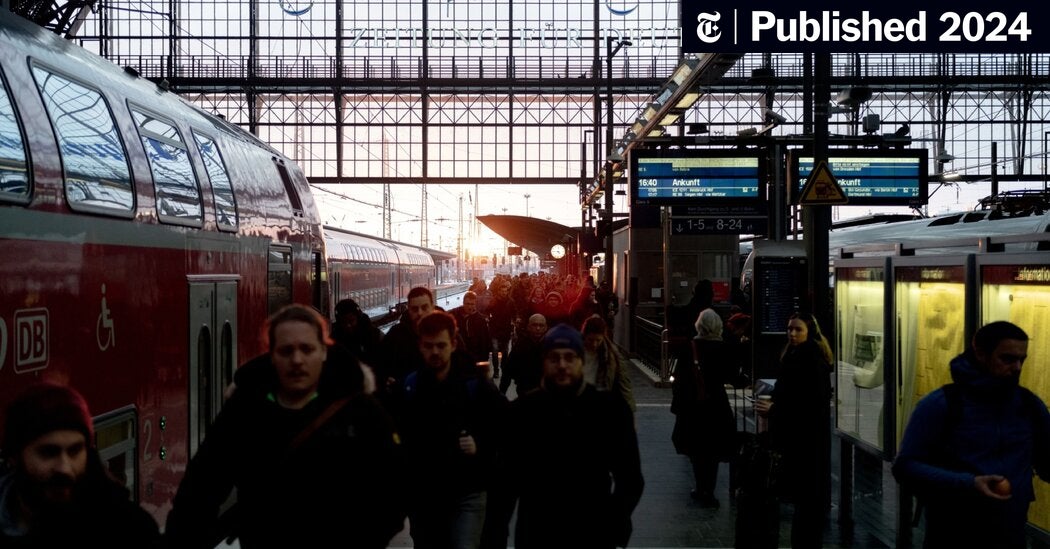Thousands of small and medium -sized enterprises that form the backbone of the German economy have warned this week that the country lost its advantage, because the central bank of the country reported that the threat of a recession will be looming on Germany During the first three months of 2024.
“Every day, Germany loses its ability to remain international competitive,” read an open letter to the government signed by 18 associations representing businesses, in industries ranging from technology to trucking to taxi companies.
The purpose of the letter was to urge legislators to overcome partisan fights which block the adoption of a law intended to provide tax credits for investments which accelerate the transition to a green economy. But the scanning declaration has checked a list of concerns faced by companies, including high energy prices, labor shortages, slow efforts to digitize bureaucracy and high taxes. “The economic slowdown is homemade,” he said.
These strains are reflected in a report published Monday by the German central bank, the Bundesbank, which said that the country’s economy, the largest in Europe, was to shrink in the first three months of the year. After a contraction of 0.3% in the last months of 2023, a second consecutive decline would land the country in a technical recession.
The Bundesbank has cited a low export market, consumers concerned about prices that remain cautious for spending and a lack of investment by companies frightened by higher borrowing costs.
The country’s Minister of Economy, Robert Habeck, described the state of the economy as “radically bad” last week.
On Wednesday, he presented the government’s economic report for 2024, which included projections of only 0.2% annual growth, reduced compared to the expansion forecasts of 1.3% published last year. “We come out of the crisis more slowly than the expected,” said Mr. Habeck.
The ministry of Mr. Habeck has written legislation, inspired by the American law on the reduction of inflation, in order to provide billions of tax credits to companies that invest in green energy. The idea is to attract many German companies that have moved their investments in the United States.
Taxes on companies in Germany are among the highest in Europe, with more than 29%, against around 25% in neighboring France and the Netherlands. .
The lower room of Parliament adopted the law in November, but the members of the conservative opposition parties block its last passage through the upper chamber. They point out that the application of the proposed law will fall to the United States, which lacks sufficient resources. They also demand that the cuts planned for agricultural diesel fuel subsidies – a proposal that sent farmers to the streets of national demonstrations last month – should be abandoned in exchange for their support.
The public call for business associations is an unusual campaign for groups that are generally in the background. It reflects the frustration felt by many small and medium -sized companies – known as Mittelstand – on the government’s desire to spend billions to attract large companies such as the Intel chip manufacturer or the battery producer Northvolt, said Jens Südekum, professor of economics at Heinrich Heine University in Düsseldorf.
“This is why this law is so important – it is an instrument for everyone,” said Mr. Südekum. “For small and medium -sized businesses, it’s really essential.”





